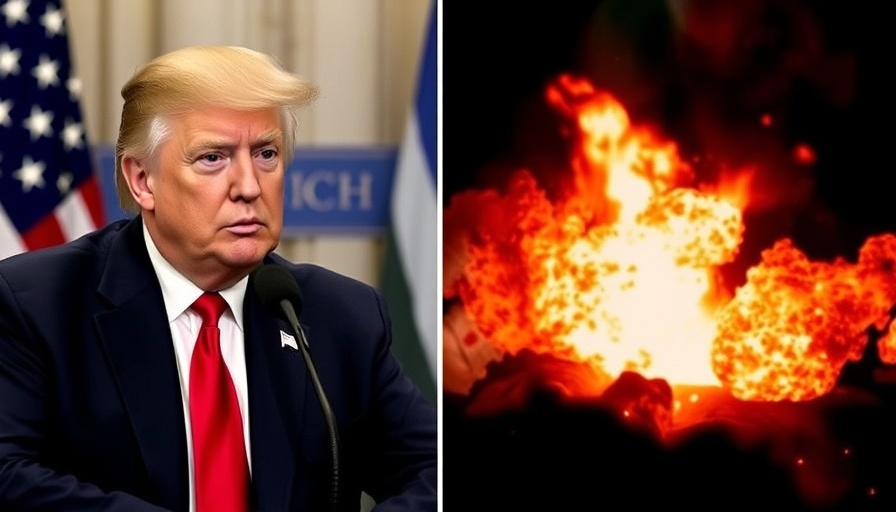
Trump's Shifting Narrative on War and Peace
During his campaign, Donald Trump positioned himself as a champion of peace, pledging to end America’s endless wars. Fast forward to June 22, 2025, and the striking contrast is apparent. His administration has embarked on one of its boldest military actions yet, targeting three significant nuclear enrichment sites in Iran. This decision, deemed a "spectacular military success" by Trump, raises numerous questions about the genuine intentions behind his foreign policy.
Regime Change: A Double-Edged Sword?
In a provocative statement on his Truth Social platform, Trump hinted at the possibility of Iranian regime change, utilizing his infamous "MAGA" slogan within a new context: "Make Iran Great Again" (MIGA). This rhetoric has stirred mixed responses, dividing even his staunchest supporters. While some Republicans find themselves caught between the desire to counter nuclear threats and the impulse to halt foreign entanglements, Democrats are similarly introspective about their historical stance on interventionism.
The Political Fallout of Military Actions
Trump’s military bombings have underscored a stark division among members of his own camp. Politicians like JD Vance argue that the U.S. isn't engaged in a war with Iran itself but against its nuclear program—an assertion intended to soften the stigma of military engagement. This rhetoric not only serves to justify military action but also engages a broader audience wary of war.
The Greater Gamble in the Middle East
As many analysts note, Trump’s attacks are not just tactical maneuvers but political gambles with far-reaching implications. He stakes his reputation and the future of U.S. foreign policy on such risks. Could these military efforts backfire, leading to greater instability? Given the historical complexities of U.S.-Iran relations, fears of a protracted conflict loom large.
Public Reaction: Voices from the Ground
The airwaves are filled with protesters voicing strong opposition to Trump's military decisions. Images of demonstrations underscore a populace considerably divided over the necessity of war versus the audacity of military strikes. Reports suggest that the fallout from these bombings could ignite further regional tensions, challenging the narrative that military force is a viable solution to geopolitical issues.
America’s Role in Global Affairs
With military interventions increasingly viewed with skepticism at home, what does this shift mean for America's role on the global stage? Trump’s actions are playing into a narrative of American unilateralism, raising concerns about the legitimacy of U.S. interventions in sovereign nations. As the situation evolves, it becomes crucial to assess not just immediate impacts, but the long-term geopolitical ramifications for both the U.S. and the Middle East.
A Call for a Nuanced Perspective
Ultimately, Trump’s decision on Iran not only reflects his foreign policy style but also raises profound implications for both domestic and international audiences. As discussions around nuclear proliferation continue, Americans and global citizens alike must grapple with what this means for future diplomacy. Striking a balance between security and engagement requires careful deliberation, avoiding the simplifications that often accompany political rhetoric.
In an era where war is juxtaposed against peace, understanding the complexities behind these developments is imperative for responsible citizenship. As Trump navigates these high-stakes challenges, attention must be paid not just to the strategies employed, but to the narratives constructed around them.
 Add Row
Add Row  Add
Add 




Write A Comment